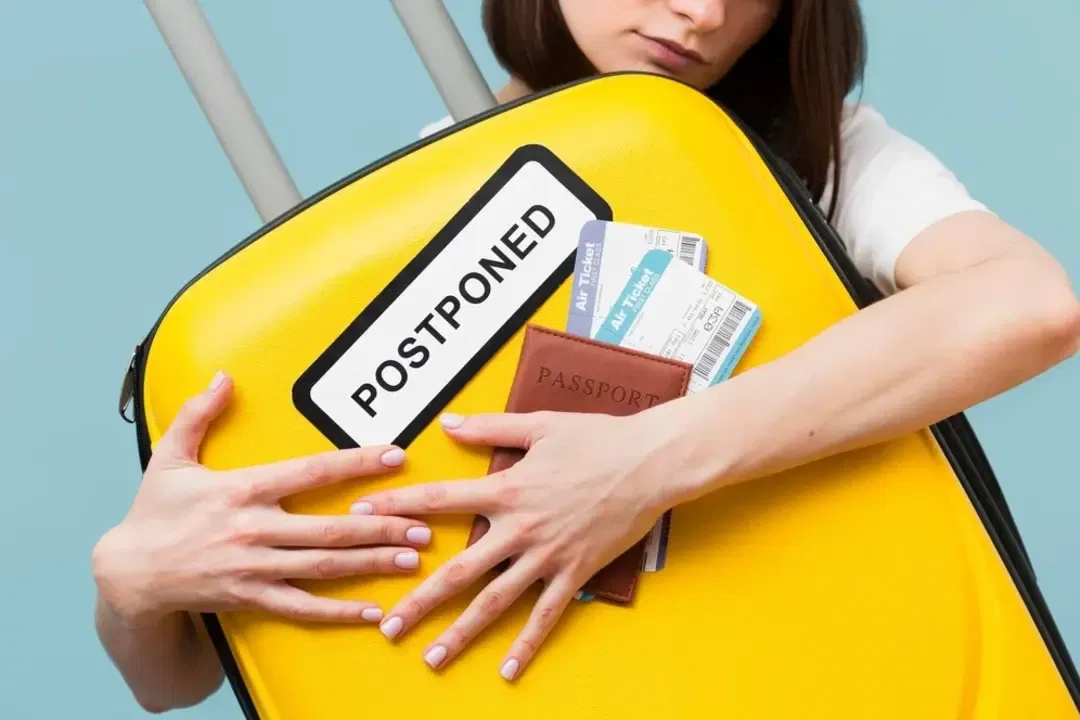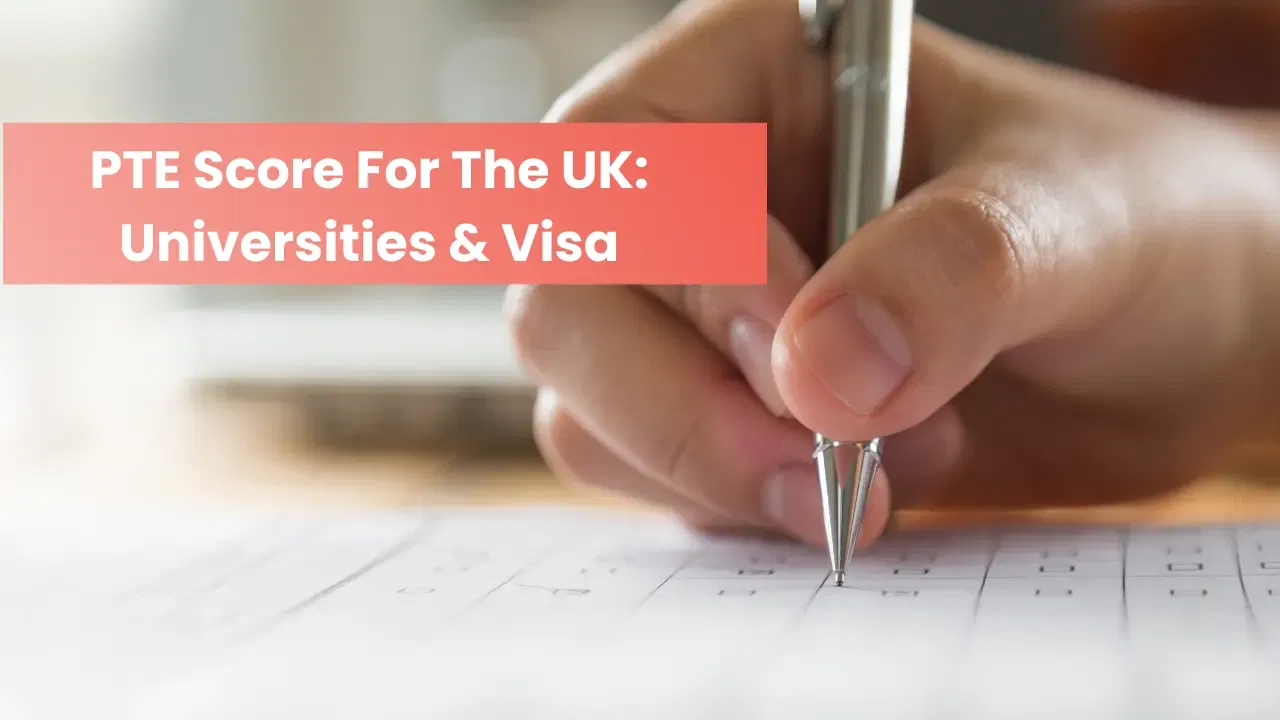If you’re over the age of 16 and you want to study in the land of tea and pints for more than 6 months, a visa would be needed. However, there exists a huge hurdle called ‘rejection’. Impressively, the UK issued only 2% refusals in the past year. This number can be a shining light to your path but it’s best to consider the worst-case scenario as well! Find the top UK student visa rejection reasons in this blog and how you can bounce back strong!
Read About UK Student Visa Rejection Reasons
Let’s finally demystify the UK student visa process, transform anxiety into confidence, and ensure your academic quest on British soil becomes a glorious reality not a rejected footnote in your travel diary.
The Documentation Maze:
The very first and most common UK student visa rejection reasons is that the labyrinth of required documents can be daunting. Missing, inaccurate, or outdated information can trigger instant rejection. You have to give meticulous attention to detail, from completing application forms to double-checking the validity and consistency of every supporting document, including transcripts, bank statements and proof of address. Remember, even a misplaced comma can throw a wrench in your plans.
Financial Fortunes:
You have to convince the authorities that you are financially stable. Let your sufficient funds cover tuition and living expenses for the entire course duration. This includes providing bank statements showing adequate balance, exploring scholarship opportunities, or securing a reliable sponsor. This is one of the very common UK student visa rejection reasons.
Academic Acumen
If your academic record isn’t stellar, be prepared to explain any inconsistencies with supporting documentation. UK universities hold high academic standards and your achievements need to reflect that. Many times, rejections are faced because of student’s failure to deliver. When you work for a UK university, remember that you are working towards the visa too!
The Intent Intrigue
Convincing the visa officer of your genuine intention to study in the UK is crucial. Clearly articulate your academic goals, future career aspirations and how your chosen course fits into your overall plan. Make it known that you wish to return to your home country. If they sense any hesitation here, it can be one of your UK student visa rejection reasons.
Mastering the English Maze
First impression is the last impression! This is clearly seen in your ability to speak the language. Proficiency in the English language is your key to success in the UK. Meet the required standards through recognised tests like IELTS or TOEFL. If your score falls short, consider additional language courses to bridge the gap. Remember, communication is key and failing to meet the English language bar can be a major hurdle.
Interviewing for Impact
The visa interview is your chance to make a lasting impression. Be prepared for common questions about your chosen course, academic background and future plans. Practice confident responses, research the university and program thoroughly, and maintain a professional demeanour. Interviewers are keen to catch you if they sense underconfidence and therefore lead to rejection.
The Gap Year Dilemma
Gap years can be enriching experiences, but they can also raise eyebrows. Be prepared to explain your reasons for taking a break, highlighting any productive activities you undertook during that time. Show how the gap year has contributed to your personal and professional development. Remember, if you don’t frame your gap year in a positive way it can be one of your reasons for refusal of UK student visa.
Timing is Everything
Procrastination is your visa application’s worst enemy. Submit your application well in advance of the deadline to allow ample time for processing. Remember, delays can raise suspicions and jeopardise your chances.
Past Travel Troubles
A history of visa overstays, rejections, or illegal activities in other countries can significantly impact your application. Be honest and transparent about any past travel issues, providing explanations and evidence of rehabilitation if necessary. A clean travel record builds trust and strengthens your case.
Visa Secured, Comfort Ensured: Find Premier Student Housing Options
Navigating the Regulatory Reef
Finally, ignoring the established rules and procedures set by UK immigration can be another UK student visa rejection reasons. Familiarise yourself with the latest visa requirements, understand the different types of UK student visas and ensure your application adheres to every guideline.
Tips To Avoid Your UK Student Visa From Being Rejected
Student visa rejection reasons in the UK can be totally avoided! Read the below tips to know more!
- Apply early, 6 months in advance if possible, to allow enough processing time.
- Ensure you have sufficient funds in your account to cover all costs – tuition, living expenses, etc. – as per UK requirements.
- Prepare thoroughly for your credibility interview by reviewing all details of your application and being able to clearly explain your reasons for studying in the UK.
- Carefully check you have all required documents translated into English before submitting your application.
- Provide proof of your English abilities through approved tests to meet university and visa requirements.
- Calculate and pay the immigration health surcharge when applying to avoid delays.
- Collect your biometric residence permit within the specified timeframe after arriving in the UK.
- Avoid making travel bookings until your visa is granted, as processing times vary.
- Contact UKVI for help with any questions – they offer 24-hour response times in multiple languages.
How To Bounce Back After Your UK Visa Rejection?
No worries if your visa is rejected. Remember, persistence and resilience are key. Use this experience as a learning opportunity to improve your application and stay positive about your study abroad dreams. Read this section to learn in what ways you can grow!
Understand the Reason: First, obtain feedback from the UK Visas and Immigration (UKVI) about the reason for rejection.
Appeal the Decision: If you believe the decision was made based on an error or new evidence exists, you can launch an appeal within 14 days of the rejection notification.
Reconsideration (for Tier 4 visas): For Tier 4 visas, you can request a reconsideration if you can provide fresh evidence to address the reason for rejection.
Re-apply with Improvements: After addressing the issue that led to the rejection, you can re-apply with a more robust application. Ensure you have all the necessary documents and you meet the financial requirements.
Explore Alternative Study Options: Consider studying in other countries with similar educational opportunities and potentially simpler visa requirements. Countries like Ireland, the Netherlands, and Germany offer attractive options.
Upgrade Your Qualifications: Strengthen your academic profile by taking additional courses, improving your English language proficiency, or gaining relevant work experience. This can enhance your chances for future applications.
Seek Professional Guidance: Consult with immigration advisors or visa specialists. Their expertise can help you understand the rejection, evaluate your options and build a stronger application for future attempts.
Conclusion
Applying for a UK student visa can seem daunting, but being aware of potential rejection reasons and following the tips outlined here will set you on the path to success. With thorough preparation, attention to detail, and persistence in the face of setbacks, your study abroad aspirations can become a reality. Remember that rejections are learning opportunities – use any feedback to continue improving your application. Stay positive, seek expert guidance if needed, and keep your eyes on the prize!
FAQs
What are the top UK student visa rejection reasons?
Failure to provide necessary documents, an unsuccessful credibility interview, not adhering to Student visa regulations, such as failing to maintain the required funds in your account for 28 consecutive days and neglecting to include an ATAS clearance certificate (if your course requires one).
What are the chances of UK student visa refusal?
The UK student visa rejection rate is between 2% – 5%.
What is the UK student visa success rate?
The UK student visa success rate for Indian students is 98%.
Can I reapply if my UK student visa is refused?
If your Student visa application is declined, you have the option to reapply without any restrictions on the number of attempts. However, it’s important to note that you cannot utilise a previous CAS certificate when submitting a new visa application.
Is tuition fee refundable if visa rejected?
If a visa is rejected, 100% of the fees are refundable but the candidate must inform the college or university within the specified timeframe.















0 Comments